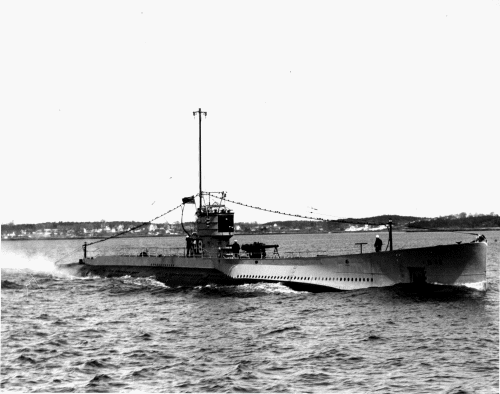

S48 1921
| No | Name | Yard No | Builder | Laid down | Launched | Comm | Fate |
| SS159 (ex-SS169) | S48 | Lake, Bridgeport | 10/1920 | 26.2.1921 | 10.1922 | stricken 9.1945 | |
| SS160 (ex-SS170) | S49 | Lake, Bridgeport | 10/1920 | 23.4.1921 | 6.1922 | stricken 3.1931 | |
| SS161 (ex-SS171) | S50 | Lake, Bridgeport | 3/1920 | 18.6.1921 | 5.1922 | stricken 3.1931 | |
| SS162 (ex-SS172) | S51 | Lake, Bridgeport | 12/1919 | 20.8.1921 | 6.1922 | collision 25.9.1925 |
|
Displacement standard, t |
|
|
Displacement normal, t |
903 / 1230 |
|
Length, m |
73.2 |
|
Breadth, m |
6.60 |
|
Draught, m |
4.10 |
|
No of shafts |
2 |
|
Machinery |
2 Bush-Sulzer diesels / 2 electric motors |
|
Power, h. p. |
1800 / 1500 |
|
Max speed, kts |
14.5 / 11 |
|
Fuel, t |
diesel oil 177 |
| Endurance, nm(kts) | 8000 (10) / |
|
Armament |
1 x 1 - 102/50 Mk IX, 5 - 533 TT (4 bow, 1 stern, 14) |
| Electronic equipment | SC sonar |
|
Complement |
38 |
|
Diving depth operational, m |
60 |
Project history: The further development of R class submarines. They were built under three notably differed designs developed by Holland, Lake and Bureau of construction. After the acquisition of these designs by General board in 1917 one submarine was built under each of them as "prototype" (S1, 2 and 3 respectively). Lake variant (S2) appeared unsuccessful, and later Lake built submarines under Bureau design.
Serial building was developed under two designs: 24 submarines (S18-41) by Holland and 14 (S4-17) by Bureau. They were followed by 10 almost same boats of the second series (S42-47 by Holland and S48-51 by Bureau).
The basic difference between Holland and Bureau designs consisted in a hull construction: in the first case it was fulfilled single-hulled, in second double-hulled. The diving depth was identical. Submarines built by Lake Torpedo Boat, had additional stern TT. As when these submarines were designed, an opinion about necessity of providing of the highest submerged speed was dominated, CT on them were fulfilled as much as possible streamlined. On trials "prototypes" demonstrated outstanding results, achieved 12.5 to 13kts submerged. First World War experience, however, has shown, that superfluous 2-3kts are not so necessary in comparison with safety of crew, therefore already during completion "serial" submarines received less streamlined, but much more convenient CTs.
Though 'S' class submarines notably exceeded the predecessors on the majority of characteristics, naval authorities in 1925 recognized them as unsuccessful because of insufficient endurance for Pacific service.
Modernizations: 1939, S48: + 1 x 1 - 12.7/90, JK sonar
1940s, S48: - SC sonar; + SD radar, QB or QC sonars
Naval service: S51 was rammed by s/s City of Rome off Block Island (New York) 25.9.1925.

S48 1924
© Ivan Gogin, 2014